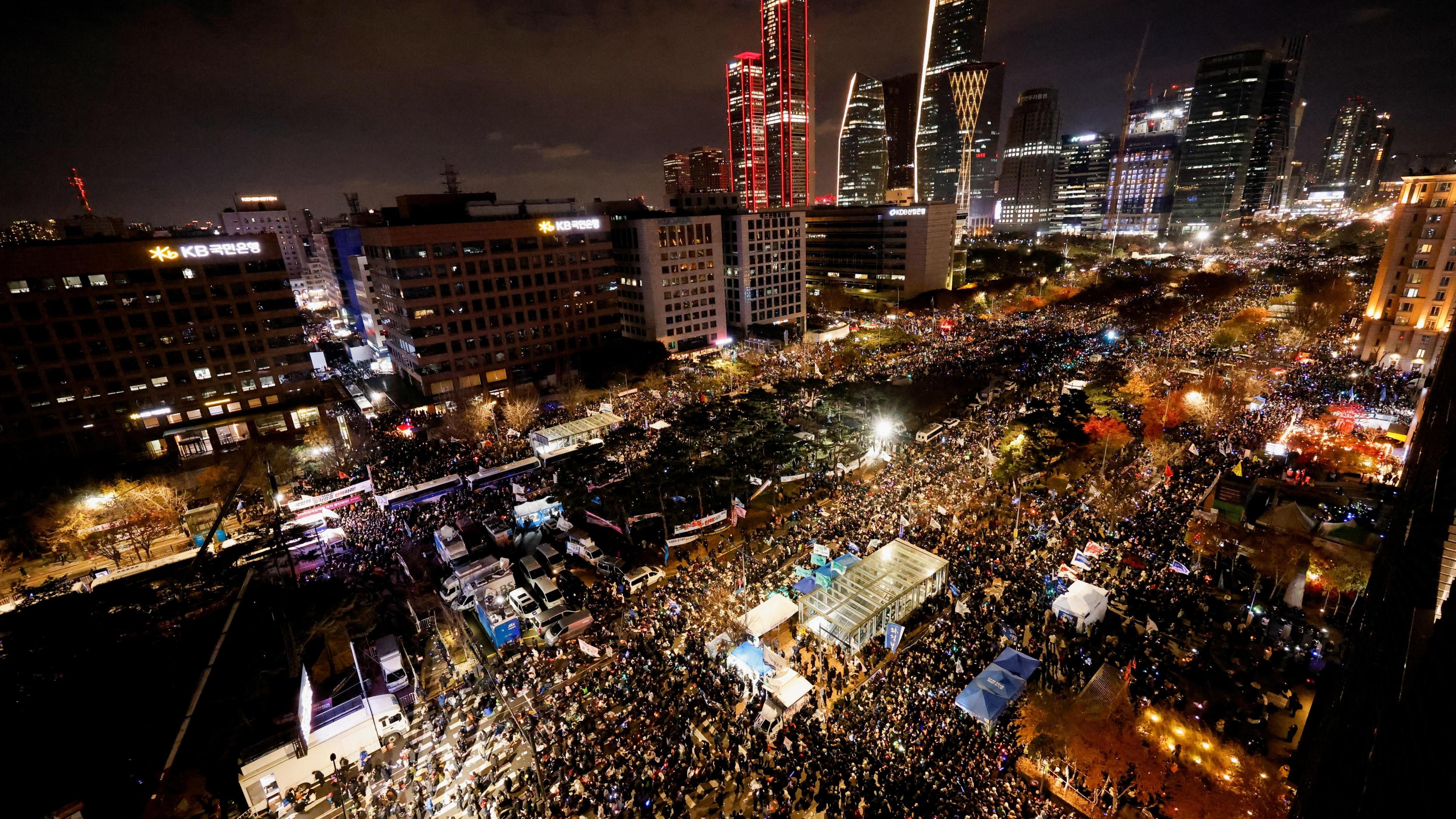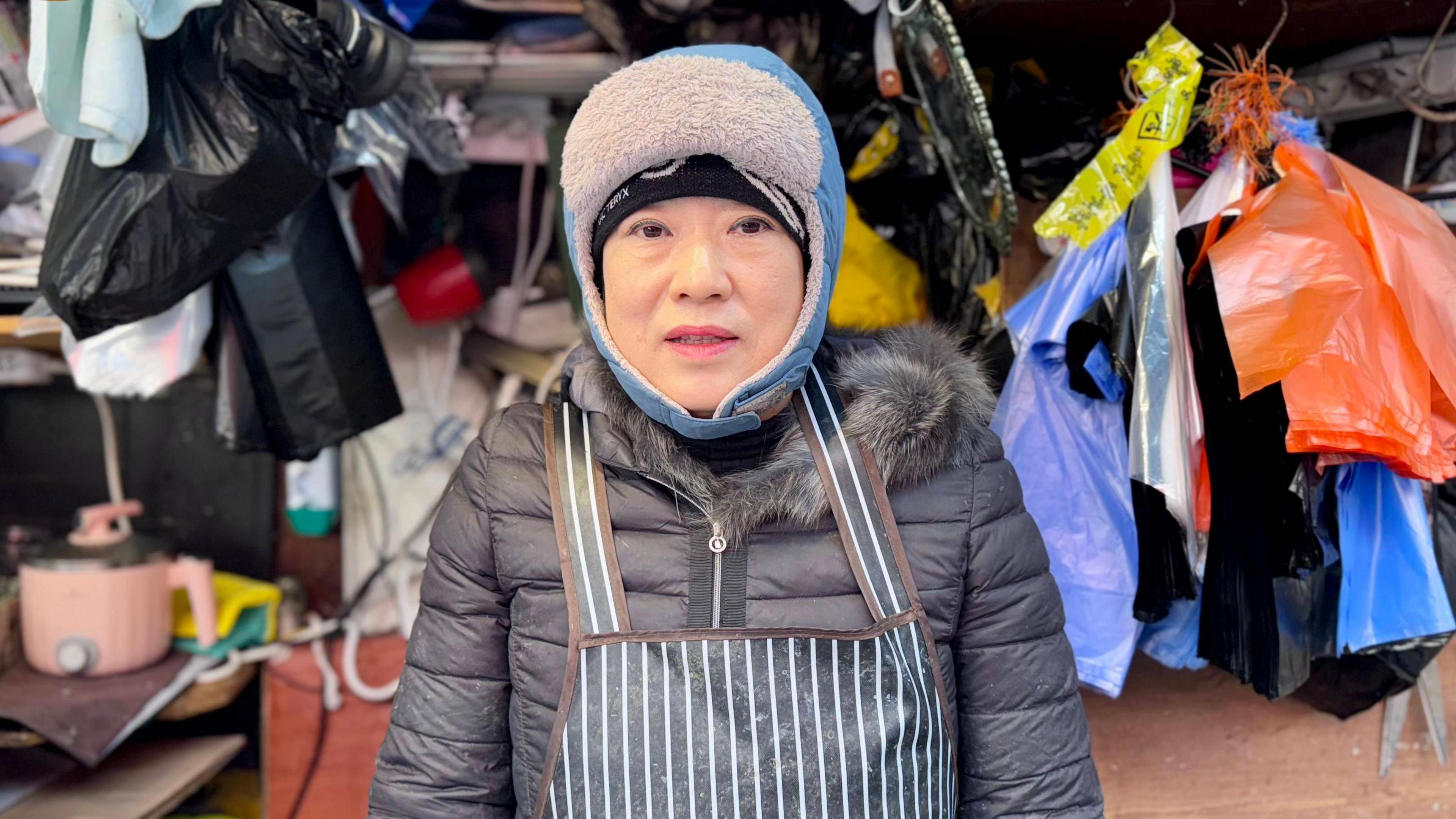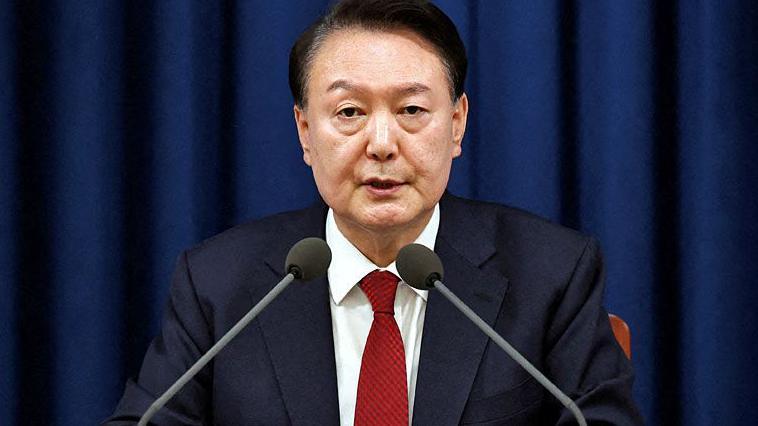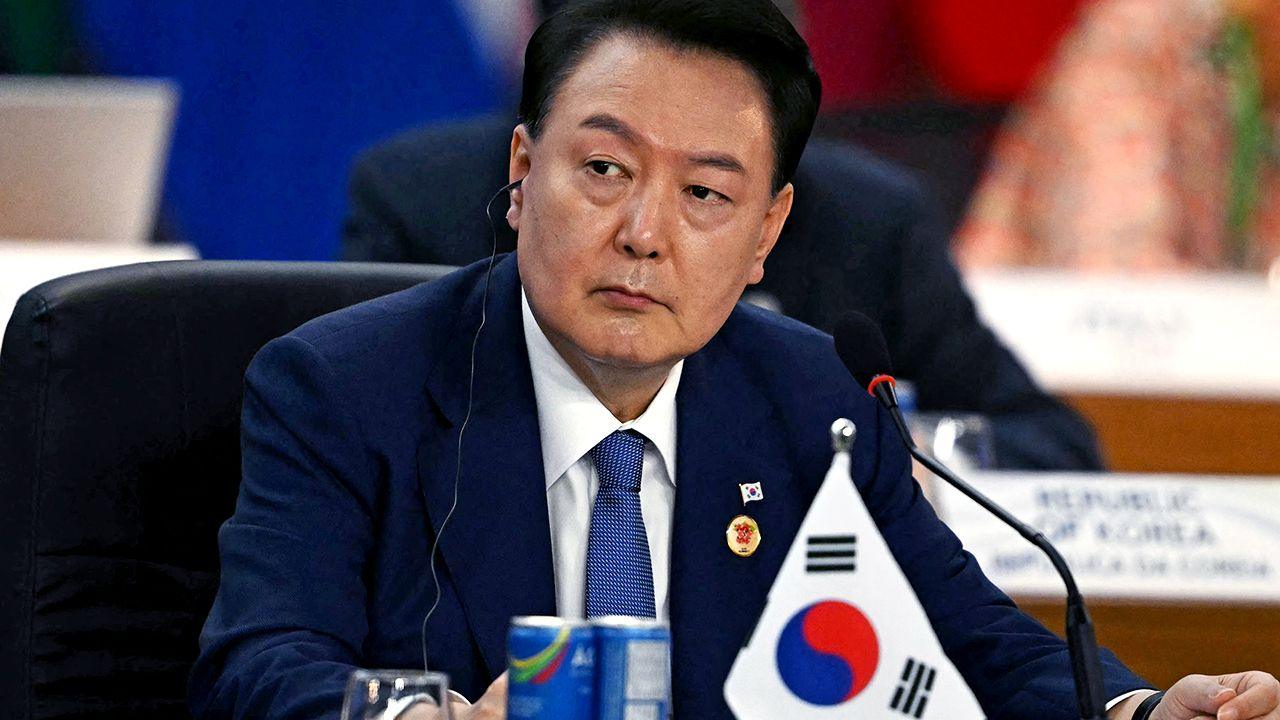S Korea president apologises for martial law declaration
Watch: 'I am very sorry', South Korea president says
- Published
South Korea President Yoon Suk Yeol has apologised for declaring martial law earlier this week and has said there will not be another such order.
The embattled leader is facing potential impeachment following Tuesday night's declaration, which was quickly overturned in the National Assembly.
In response to the president's address, the leader of his ruling People Power Party (PPP) told reporters that it had become impossible for Yoon to continue his normal duty.
"His early resignation is inevitable," said Han Dong-hoon.
"I am very sorry and would like to sincerely apologise to the people who were shocked," Yoon said in his brief televised speech.
"Regarding the declaration of martial law, I will not avoid any legal or political responsibility."
It had been speculated that he would use the address to the nation - his first since declaring martial law - to resign but he did not do so, instead saying that he would delegate the work of stabilising the situation to his ruling party.
He also did not mention impeachment.
Later on Saturday, almost all members of the PPP walked out of parliament ahead of a vote on whether to impeach Yoon.
Opposition MPs responded with jeers and howls of protest, as the speaker scolded them for leaving.
"This is ignoring the will of the people," he said.
At a massive protest outside parliament, crowds chanted "go back in, join the vote".
Although some party MPs did end up returning to the chamber, the bill appeared destined to fall short of the 200 members required to pass it, which would need to include eight members of Yoon's own party.
The voting process was paused until midnight to give time for politicians to end their boycott.
A special counsel bill proposing an investigation into first lady Kim Keon-Hee failed by two votes.

Tens of thousands of people gather outside the National Assembly ahead of the impeachment vote
Opposition leader Lee Jae-myung said he was disappointed with President Yoon's comments on Friday and that they would only increase the public's sense of anger and betrayal.
Lee added that he would do his best to remove the president from office.
"The greatest risk facing South Korea right now is the very existence of the president."
It is not only politicians who have been outraged by Yoon's actions.
Yang Soonsil, 50, is a seafood shop owner at Namdaemun market in the South Korean capital, Seoul. She told the BBC that she had felt fear and disbelief when martial law was declared.
"I have lost complete trust in him [Yoon] as a president, I don't think he's my president any more," she said.
"We need to fight until the end, we can't let him maintain his position as a president."

Yang Soonsil says she has lost complete trust in President Yoon
At the same market was shopper Han Jungmo, who said that Yoon's apology was not enough.
"He must either step down voluntarily or be impeached, if he's not willing to," he said, adding that the president had broken trust with the people.
"If he continues to insist on being president, then it would be a very hopeless situation because I believe for this president, this martial law is not the only misdeed he has conducted."
South Korea was plunged into political turmoil late on Tuesday night when Yoon made the shock martial law declaration.
He cited threats from "anti-state forces" and North Korea. However, it soon became clear that his move had been spurred not by external threats but by his own domestic political troubles.
Some lawmakers jumped over barricades and fences to get past security forces in order to convene in parliament and void Yoon's decree.
Yoon rolled back the declaration six hours later after MPs voted it down but there had been concern he would attempt to make a second decree. Some lawmakers had been staying near the National Assembly to make sure they were there ready to void it.
Before his attempt to place the country under military rule, Yoon had been beset by low popularity ratings, corruption allegations and an opposition-led legislature that reduced him to a lame-duck leader.
Related topics
- Published4 December 2024

